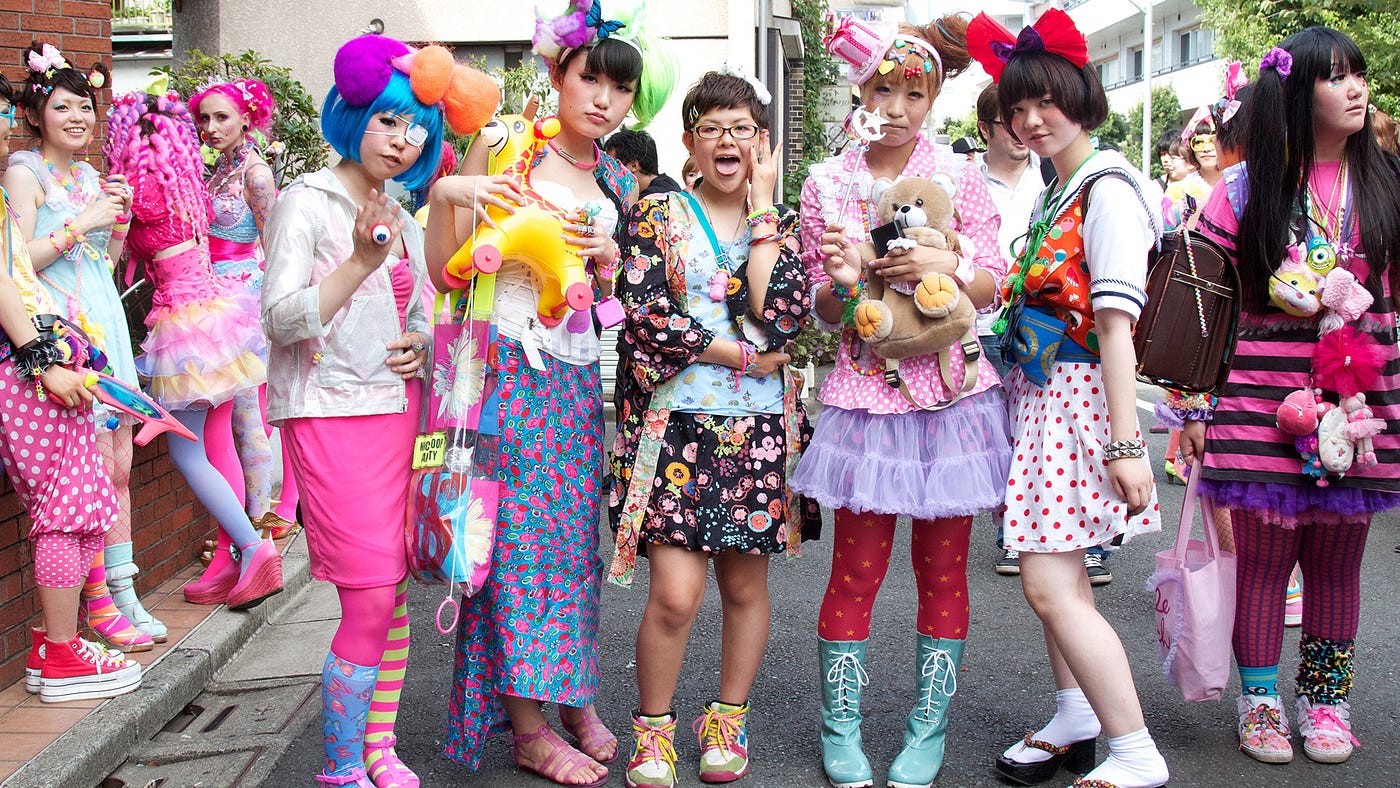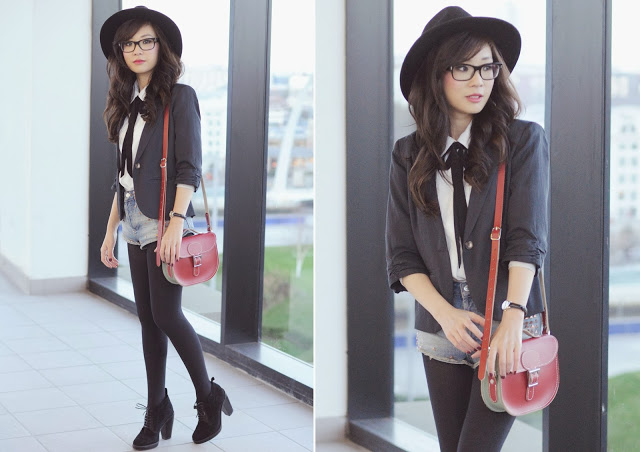
Kimono are Japan's national dress and many people today still love wearing them on special occasions, including
long-sleeved kimono called furisode which are worn at coming-of-age ceremonies, and also the traditional male formal
attire called montsuki haori hakama. Japan is proud of its traditional clothing (wasou), but how is this viewed today in
more modern times?

Currently in Japan, the "big silhouette" style, in which large-size clothing is worn, is very popular.

Harajuku district in Tokyo is a leading area for Japanese young fashion. The area is like an exciting theme park for
young Japanese girls in their teens and early twenties with abundance of shops and boutiques catering to mixed tastes.
It continually generates new fashion into the world with the idea of “kawaii” as the keyword. Harajuku fashion is
imaginative, so much so that it may seem eccentric at times to the older generation, but freely incorporating one’s own
taste is exactly the spirit of Harajuku style. On the weekends, the streets bustle with girls of kawaii fashion looking
for kawaii clothes.

Regardless of the chilly weather, shorts are currently all the rage with Japanese girls. Paired with long socks or other
legwear, the popular and adaptable style marks a shift away from winter clothing of the past.

With winter in full swing, belly warmers or bands known as haramaki are making their way onto the waists of a growing
number of young Japanese men. Until recently, haramaki typically came only in a camel-colored beige close to the color
of the typical Japanese skin.






